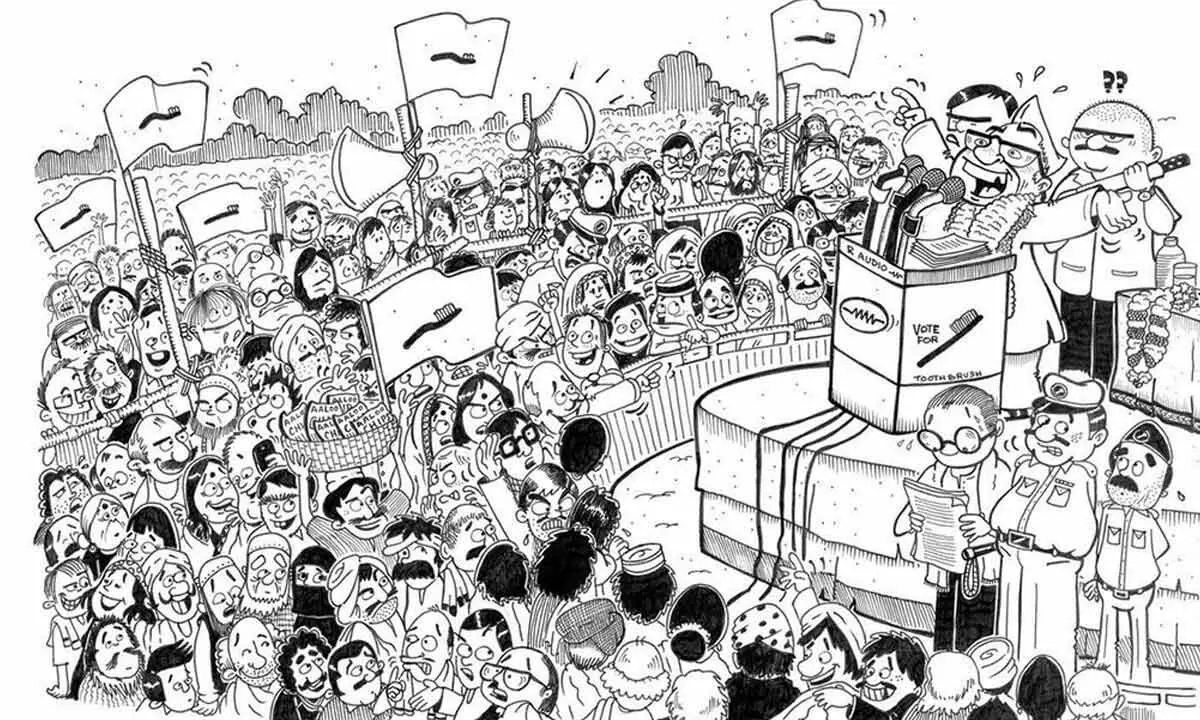Evolution of Model Code of Conduct

It does not enjoy any statutory backing. However, the Supreme Court has upheld its sanctity on several occasions. The Election Commission is fully authorised to investigate any violation of the code, and pronounce punishment. The code comes into force as soon as the EC announces the poll schedule
The Model Code of Conduct(MCC) which came into force on Saturday after the announcement of Lok Sabha polls finds its origin during assembly elections in Kerala in 1960 when the administration tried to evolve a code of conduct for the political parties.
According to Election Commission of India (ECI), the code has evolved over the last 60 years to assume its present form. The MCC is a set of conventions agreed upon by all stakeholders during the elections. Its objective is to keep campaign, polling and counting orderly, clean and peaceful and check any abuse of state machinery and finances by the party in power. It does not enjoy any statutory backing. However, the Supreme Court has upheld its sanctity on several occasions. The Election Commission is fully authorised to investigate any violation of the code, and pronounce punishment. The code comes into force as soon as the EC announces the poll schedule and remains operational until the process is concluded.
"The code has evolved over the last 60 years to assume its present form. It had its origin during assembly elections in Kerala, 1960 when the administration tried to evolve a 'code of conduct' for the political parties," read the book titled "Leap of Faith". The book was published by the ECI to document journey published by the Election Commission to document the journey of elections in India. "The Model Code of Conduct was first issued by Election Commission of India under the title of 'Minimum Code of Conduct' on September 26, 1968 during the Mid-Term Elections 1968-69. The code was further revised in 1979, 1982, 1991 and 2013," the book added.
A document titled, "Role and Responsibilities of Political Parties during Elections: An Appeal to Political Parties for the Observance of a Minimum Code of Conduct during Election Propaganda and Campaign", determining the standard political behaviour, was prepared by the commission during the midterm general elections of 1968 and 1969. It was in 1979 that the Election Commission, in a conference of political parties, consolidated the code by adding a section monitoring the conduct of "parties in power".
A revised code with a comprehensive framework was hence issued to prevent the powerful political actors from obtaining an undue advantage of their position. A parliamentary panel had in 2013 recommended that MCC be granted legal backing to ensure there is no vacuum for ECI to exercise its power, which is residuary in nature. The panel had also recommended that MCC be enforced from the date of notification of polls and not date of announcement; a revision in election expenditure limit of candidates to make it more realistic; fast-track courts to dispose of election disputes within 12 months and allowing independent MPs to join any political party within six months of election.
Former Chief Election Commissioner SY Quraishi was a strong advocate of legalisation of the MCC during his tenure and had suggested stringent legal action against politicians who flout it. According to the EC, the MCC states that the party in power at the Centre and in the states should ensure that it does not use its official position for campaigning. Ministers and other government authorities cannot announce financial grants in any form. No project or scheme which may have the effect of influencing the voter in favour of the party in power can be announced, and ministers cannot use official machinery for campaign purposes.
India is gearing up for the next general elections to elect its 18th Lok Sabha. Last General Elections in the country were held in 2019. The term of the present Lok Sabha ends on June 16 and a new House has to be constituted before that.
The term of the assemblies in Andhra Pradesh, Sikkim, Arunachal Pradesh and Odisha is coming to an end on various dates in June. Last time the Lok Sabha polls were announced on March 10 and held in seven phases beginning April 11. Votes were counted on May 23.








